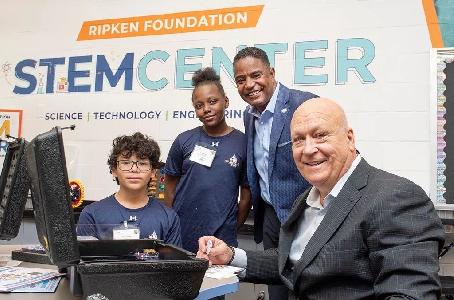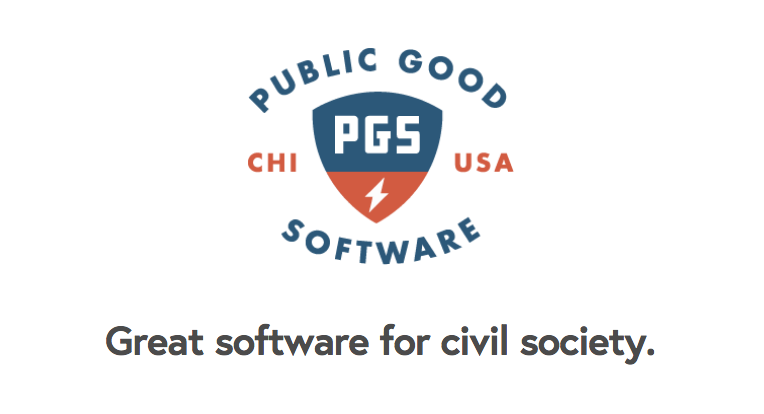Building enterprise software for nonprofits might not have been expected of one of the pioneers of the open government movement, but that’s exactly where Paul Smith finds himself now.
The 36-year-old Smith, a Frederick native and St. Mary’s College dropout who just moved back to Maryland after a 10-year stay in Chicago, cofounded the hyperlocal news website EveryBlock in 2007 with the help of a $1.1 million grant from the Knight Foundation. In some ways, EveryBlock preempted the efforts of online community news websites in the way it aggregated already published content — articles from local alt weeklies, reviews of nearby restaurants and more — and combined the information in an online platform that allowed residents of neighborhoods to talk to one another directly.
But EveryBlock’s salient feature was its publishing neighborhood crime statistics, the sort of information now available via government-sponsored data portals like OpenBaltimore. It was the precursor to a time of civic hackers and tech-focused good-government groups, both of which have been involved in recent years with persuading elected officials to voluntarily make data collected by government agencies easily accessible to the voting public.
In 2009 MSNBC.com purchased EveryBlock, which was shut down (after ownership changed hands to Comcast-controlled NBC News in 2012) in February of this year. Smith, however, had jettisoned from EveryBlock in 2011, taking a position with the Democratic National Committee as deputy director for technology.
Now living in Federal Hill, Smith is working as the CTO for Public Good Software. The goal? To bring the technology he helped develop to coordinate volunteer efforts during Barack Obama’s second presidential campaign to nonprofits and non-governmental organizations, two groups whose efforts, Smith thinks, are hampered by inefficient, dated software.
“The software out there for civic society organizations, it’s a nightmare,” said Smith, who works occasionally from Lamill Coffee in Harbor East, where Technically Baltimore found him in late July. “We want to make software that’s modern, that’s every bit as good as consumer software.”
What that looks like, though, is something Smith and the other four Chicago-based members of Public Good Software’s founding team aren’t so sure of. They have some ideas: better design and more improved user interface, an emphasis on developing for mobile, the incorporation of geospatial and mapping data, the development and use of which inform much of Smith’s own technological background.
“Our first product would connect various databases that nonprofits use — volunteers, fundraisers, e-mail lists,” Smith said.
For instance, how many nonprofit arts organizations that sell tickets to events also know whether ticket-buyers are donating every year? Smith thinks nonprofits have a need to have a richer picture of who their donors are. Public Good Software, then, is positioning itself to ride the latest wave shaking up the nonprofit world, best explained by the new credo pushed by social entrepreneurial “thought leaders”: nonprofit organizations need to be more data-driven, with better ways of measuring how well those canned food drives work.
“We’re building nonprofit software in a different way, and basically discovering who your supporters really are,” said Smith.
Public Good Software has plenty of ground to cover. Smith and his cofounders only got started in May, and they’re in the midst of closing a first round of investment, a challenge for any startup made more difficult by Public Good’s filing as a Benefit Corporation — with a social mission explicitly stated, it must find investors that are comfortable knowing the cofounders have the power to override investors’ votes on which direction to take the company.
“It’s an experiment to see how investors respond to that,” Smith said.
Although the bigger experiment lies ahead: seeing if nonprofit organizations will pay for the caliber of software traditionally reserved for enterprise-level corporations.
Join the conversation!
Find news, events, jobs and people who share your interests on Technical.ly's open community Slack

Baltimore daily roundup: B-360's policy moves; a foundation's fight for financial inclusion; Digital Navigator training

Baltimore daily roundup: Johns Hopkins dedicates The Pava Center; Q1's VC outlook; Cal Ripken inaugurates youth STEM center

Baltimore daily roundup: Scenes from an epic Sneaker Ball; Backpack Healthcare in Google AI accelerator; local tech figures' podcast


